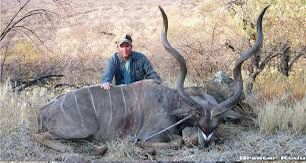NAMIBIA is recycling at least 66 per cent of used metal cans since the Collect-A-Can company first began operating here 10 years ago.
Since 1994, when just over 809 tons of metal cans were removed from the environment, the amount has increased sixfold to an average yearly load of 4 000 tons being collected for recycling. In 2002, a record amount of more than 7 000 tons of cans were collected across Namibia.The Permanent Secretary in the Ministry of Environment and Tourism, Malan Lindeque, yesterday said that through the efforts to collect metal cans, remarkable strides had been made in reducing litter and the pressure on waste disposal systems.But, he stressed, more needed to be done to also boost the level of recycling other waste products in Namibia, particularly glass.Given Namibia’s arid climate, waste materials decayed particularly slowly and hence the country was prone to the accumulation of waste.Lindeque cited roadside littering as particularly worrying.Warmer conditions as a result of climate change, Lindeque said, inevitably posed the threat of the increase of malaria since mosquitoes thrived in water trapped in metal and glass containers in waste dumps.”We believe that the time has come to expand recycling even further, and to involve all Namibians.There is no reason why every community and every part of town should not have collection sites or be serviced by collectors,” he said at a special anniversary celebration in Windhoek yesterday.Across southern Africa – where ever the Collect-A-Can company operates – some 37 000 jobs have been created and 82 per cent of the people have no other form of income.Namibia’s operation largely relies on Namibia Breweries, Namibia Beverages and Dresselhaus Transport which assists in the transport of metal cans from across the country to Windhoek from where the scrap compressed and sold to steel mills in South Africa.The Managing Director of Collect-A-Can, Nick Kock, said yesterday that the industry was generating about N$2 million for local collectors in Namibia.Kock said the industry was not a money-spinner and operated on the principle of people taking responsibility for their environment.It took the company two years to clear away a pile of about 40 million cans at Oshakati.Windhoek residents are now able to sell metal cans at 20 cents per kilogram (about 30 cans) at the Namibia Breweries Customer Care Centre in Katutura between 09h00 and 13h00 on week days.In 2002, a record amount of more than 7 000 tons of cans were collected across Namibia.The Permanent Secretary in the Ministry of Environment and Tourism, Malan Lindeque, yesterday said that through the efforts to collect metal cans, remarkable strides had been made in reducing litter and the pressure on waste disposal systems.But, he stressed, more needed to be done to also boost the level of recycling other waste products in Namibia, particularly glass.Given Namibia’s arid climate, waste materials decayed particularly slowly and hence the country was prone to the accumulation of waste.Lindeque cited roadside littering as particularly worrying.Warmer conditions as a result of climate change, Lindeque said, inevitably posed the threat of the increase of malaria since mosquitoes thrived in water trapped in metal and glass containers in waste dumps.”We believe that the time has come to expand recycling even further, and to involve all Namibians.There is no reason why every community and every part of town should not have collection sites or be serviced by collectors,” he said at a special anniversary celebration in Windhoek yesterday.Across southern Africa – where ever the Collect-A-Can company operates – some 37 000 jobs have been created and 82 per cent of the people have no other form of income.Namibia’s operation largely relies on Namibia Breweries, Namibia Beverages and Dresselhaus Transport which assists in the transport of metal cans from across the country to Windhoek from where the scrap compressed and sold to steel mills in South Africa.The Managing Director of Collect-A-Can, Nick Kock, said yesterday that the industry was generating about N$2 million for local collectors in Namibia.Kock said the industry was not a money-spinner and operated on the principle of people taking responsibility for their environment.It took the company two years to clear away a pile of about 40 million cans at Oshakati.Windhoek residents are now able to sell metal cans at 20 cents per kilogram (about 30 cans) at the Namibia Breweries Customer Care Centre in Katutura between 09h00 and 13h00 on week days.
Stay informed with The Namibian – your source for credible journalism. Get in-depth reporting and opinions for
only N$85 a month. Invest in journalism, invest in democracy –
Subscribe Now!






